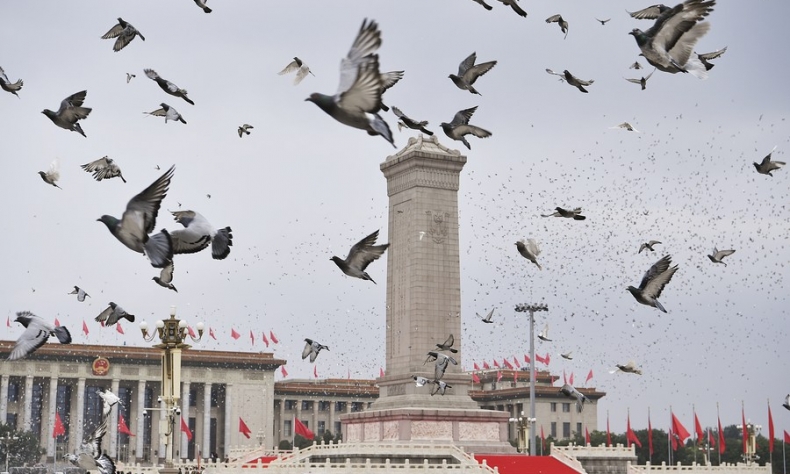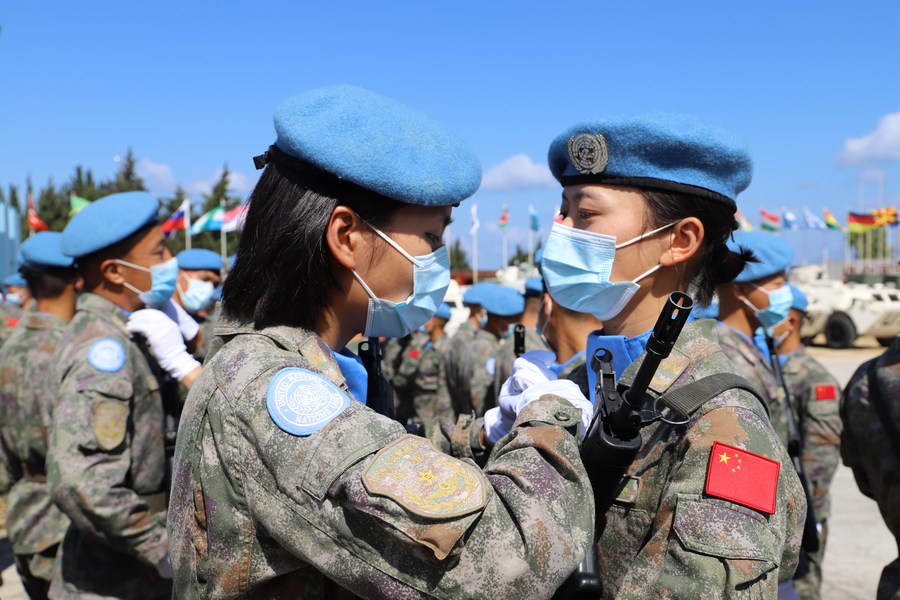New Initiative on the Horizon

The GSI is part of the holistic strategy China offers to the international community in its bid as a responsible rising power to make the world a safer home for humanity, one that is more inclusive and sustainable.
Since time immemorial, human beings have never ceased to grapple with war and peace, and smaller states have always needed the cooperation of their neighbors, particularly those with military might, in order to achieve and maintain peace they seek. In recent years, with the resurrection of the Cold War specter by the reigning hegemon, seeking regional or global peace has been more challenging than ever before, as the world is heavily compartmentalized, if not fragmented, along with geopolitical rifts.
Globalization, which once presented the world with an era of multilateral cooperation that propelled economic development, is being backpedaled with increasing incidences of unilateral sanctions and economic decoupling. Jingoistic battle cries in the name of democracy have been revved up to camouflage the nefarious move of staging “regime change.” And fealty to the reigning hegemon is commanded at the expense of pursuing independent foreign policy. International order rooted in the UN Charter has time and again been usurped unabashedly by the very nation that set the rules after World War II, while the international community is coerced to adhere to the “rules-based” order dictated by the hegemon.
While more military blocs cloaked in the outfit of security pacts have been formed across the globe to make the hegemon feel safe, global security is in fact deteriorating as the trust deficit widens between nation states. Unabated flow of arms dominates order of the day with coffers of the U.S. military-industrial complex filled to the brim.
Given such a gloomy security backdrop, Chinese President Xi Jinping’s Global Security Initiative (GSI) is no doubt a timely call that provides the world with an alternative to the escalating geopolitical tension.
The initiative evolved from President Xi’s proposal at the Fourth Summit of the Conference on Interaction and Confidence Building Measures in Asia in Shanghai in 2014 and calls for a common, comprehensive, cooperative and sustainable security model of mutual respect, openness and integration. It was first directed at Asia, but now is becoming increasingly relevant globally.

The GSI raises the principle of indivisible security. It seeks to forbid any country from strengthening its own security at the expense of others, echoing a 1999 charter signed by members of the Organization for Security and Cooperation in Europe, which includes the United States and Canada.
Be that as it may, in reality, no single charter could ever make an effective deterrent to military conflicts if only the narrow unilateral gains of a nation were to be pursued. Parallel to this, legitimate security concerns of all conflicting nations involved have to be addressed even-handedly to minimize differences, if full-blown conflicts are to be averted.
While acknowledging the current global vulnerability to military conflicts, it is not too far-fetched to envision that risks of potential military clashes could be minimized considerably if economic dividends could be reaped jointly through the promotion of development, notably through the connectivity of trans-border development where economic interests of neighboring countries in the region are all set to intertwine.
In this context, the GSI should not be read and interpreted in isolation. Much less should it be deemed a spontaneous response to any specific existing security pacts. It must be read in conjunction with such preceding proposals of China as the Belt and Road Initiative, the ideal of building a community with a share future for humanity and the Global Development Initiative. In short, it is part of the holistic strategy China offers to the international community in its bid as a responsible rising power to make the world a safer home for humanity, one that is more inclusive and sustainable.
This by itself is a timely and relevant public good that warrants global attention and common sense across the political spectrum. Amid the growing existential threats compounded with the increasingly vulnerability to military clashes, any hegemonic moves to maintain one’s geopolitical primacy at the expense of global peace and solidarity are nothing but myopic and despicable moves that deserve global disdain.
The author is chairman of the Centre for New Inclusive Asia, Malaysia.
 Facebook
Facebook
 Twitter
Twitter
 Linkedin
Linkedin
 Google +
Google +










